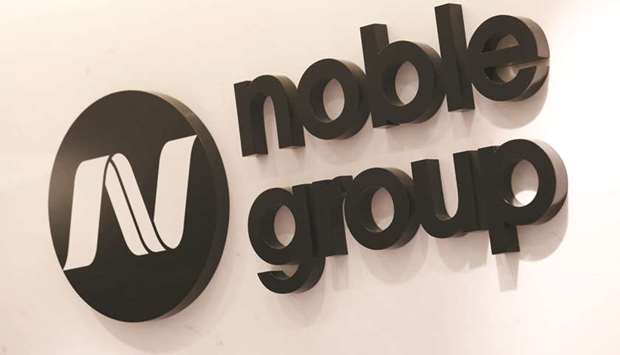But for one struggling commodity trader, they have proven a veritable lifeline.
Noble Group Ltd, which has spent more than a year battling for survival, is one of the main beneficiaries of a surge in the price of alumina – the raw material for making finished aluminium metal that’s been in very short supply since sanctions were imposed.
The sudden deficit has sent companies from Rio Tinto Group to Liberty House Group scrambling for supplies, sending prices to a record and turning Noble’s Jamalco alumina plant in Jamaica into one of the most desirable assets in the global commodities industry.
“Trading companies have been rather keen to get hold of this asset for a long time,” said Jean-Francois Lambert, a consultant and former head of commodity trade finance at HSBC Holdings Plc. “The Rusal sanction boosts further the strategic nature of the asset.”
The 92% jump in alumina in less than two months could go some way toward reviving Noble’s finances as it attempts to push through a controversial restructuring deal.
Not only has it inflated the value of the company’s largest asset, but it’s also generating cash to help keep the company afloat.
It comes as Noble suffers a raft of other problems that are likely to weigh down first-quarter results – from limited credit lines that have curtailed its ability to trade, to lawsuits from a top counter-party, as well as one of its largest shareholders, Goldilocks Investment Co.
While its core coal business has been generating operating cash flow, that hasn’t been enough to cover its costs, according to people familiar with the matter.
Still, the company’s future looks a little brighter thanks to the surge in alumina prices.
The rally began in March after a plant in Brazil owned by Norsk Hydro ASA was forced to curtail production but really took flight after the sanctions on Rusal in early April.
The back-to-back crises have exposed the fragility of the alumina supply chain, especially in the Atlantic basin, likely making Noble’s position more valuable to any potential buyers, according to several banking and trading executives.
Noble valued its position in Jamalco at $441mn at the end of last year.
Take Noble’s 55% stake in the plant, which has production costs of about $275 per metric tonne of alumina, according to people familiar with the matter. At current prices of just under $700 a ton, that would translate into annual operating profit of about $250mn.
That’s more than the $175mn to $200mn in earnings before interest, tax, depreciation and amortisation Noble forecasts its trading business could make after the restructuring.
Noble also has an offtake contract with Clarendon Alumina Production Ltd, the Jamaican government entity that owns the remaining 45% of Jamalco, a deal that gives the company a significant exposure to rising prices, according to the people. The contract covers just over 6mn tonnes of alumina over 12 years from 2013; there’s also a loan from Noble to Clarendon, which worth $140.6mn at the end of March 2017, according to Clarendon’s statements.
While the alumina price spike is helping Noble, the increase in value is likely to accrue largely to the hedge funds and banks holding the company’s debt – assuming the restructuring, which has the support of 83% of the senior creditors, goes ahead.
That’s because as part of the restructuring, Jamalco will be placed in a special holding company for Noble’s assets, and any excess cash flows or proceeds from a sale will be used to pay down the holding company’s debt.
The move in alumina prices should improve the valuation of Jamalco, said Brayan Lai, an analyst at credit research firm Bondcritic Ltd, but “it does nothing towards Noble’s continuing businesses.”
For the company’s creditors, representatives of which recently toured the facility in Jamaica with Noble management, the turmoil in the market creates a happy dilemma: pursue a rapid sale after the restructuring or hold on to the asset and benefit from higher prices.
Noble is seeking to fix prices with alumina buyers for some of its output until late 2019, according to a person familiar with the matter.
“Creditors are about to take a leap of faith, hoping for the ability of Will Randall and his team to create an attractive business,” said Lambert, the consultant. “Jamalco either brings new optionalities on the table or could contribute, through a sale, to significantly reducing the debt burden.”

